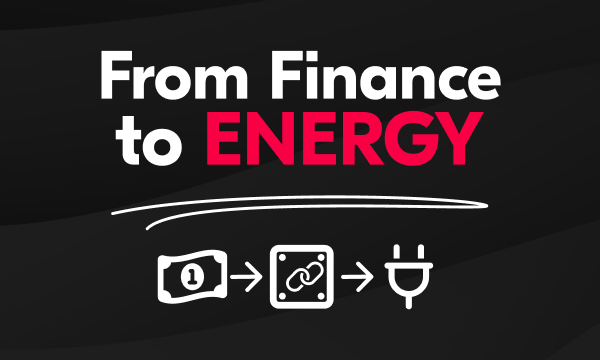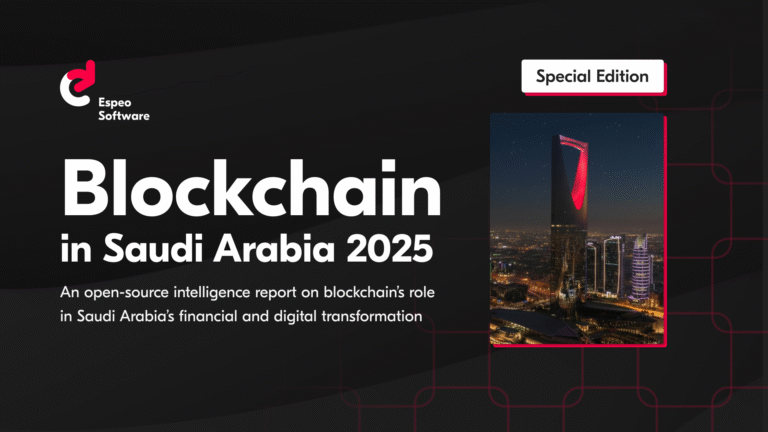Distributed ledger technology is not the most user friendly or easy to grasp. Blockchain gamification is one way to bridge this user gap. The gaming sector has plenty in store to enrich other industries on how to keep customers engaged. According to a recent study by Newzoo, the global gaming industry has over two billion gamers and is worth about $150 billion. Video game income has even surpassed other forms of entertainment, like movies and music, according to the study. The most famous pieces of art can create sales in millions of units and can sustain numerous concurrent users.
Various industries are embracing gamification or the use of gaming and game design techniques to engage their users better. Marketing departments are now using gamification in their marketing activities to reduce customer churn. Instead of just providing coupons, renewable points, and discounts, businesses are now spicing up their marketing campaigns using cutting-edge technologies to realize engaging risk and reward mechanisms. Starbucks, for instance, has introduced a loyalty program that enables customers to receive better rewards the more they spend. Besides, the company has also deployed multiple tech-based strategies over the years, like mobile apps, QR codes, and segmented reality to engage their customers.
The blockchain tech power to offer secure record-keeping and enable transactions through cryptocurrencies makes it suitable for such applications. Different services are already establishing new channels to exploit the potential of blockchain-based solutions and possibilities of gamification. Form of gamification may vary. Projects like Sandblock, for instance, use smart contracts to facilitate their loyalty program campaigns. The digital and decentralized games such as CryptoKitties also demonstrate how crypto tokens can represent ownership of digital assets effectively. These use cases also demonstrate how blockchain has brought back fairness and trust in the gaming industry. In this article, we shall see how blockchain tech is bringing the elements of gamification not only to typical gaming space, but basically to every sector through loyalty programs, digital ownership, and trustworthy and fair practices.
Loyalty programs for e-commerce
Critics often complain that loyalty programs concentrate on just maximizing profits for businesses. Participants are incentivized inadequately for their participation by loyalty points campaigns that contain biased rules. Though it is acceptable for a business only to carry out sustainable loyalty programs, they are still supposed to offer customers with satisfactory reward rates.
The problems begin with outlining business objectives, considering that loyalty campaigns can create many benefits. The marketers then continue with designing the reward system, the composition of reward and producing incentives good enough to cause behavior change but mean to the point that they grind down margins. Besides, there are puzzles of customer psychology to consider, which can make two incentives of equal value stir different levels of consumption.
Using blockchain for business that needs relevant loyalty programs can eliminate such unfair dealings through the transparency it delivers. Smart contracts can be applied to monitor the mechanisms of these campaigns. Through the openness of smart contracts, it is possible to notice if firms are providing irrational terms and conditions. On the other hand in case of public blockchain space, some unprincipled members may also attempt to participate and abuse the system. Determined scammers can also alter poorly designed gaming rules, and therefore, having transparent records shows the participants who are trying to misbehave clearly.
Launching a successful blockchain loyalty program starts with the objectives of the campaign. Marketers can only engineer the right strategies and evaluate whether they are running their campaigns well only if they have set clear goals. In other words, true benefits of blockchain come to truly valuable and well planned loyalty programs.
The use of digital currencies and blockchain-based feature will give clients more flexibility with their loyalty points. Many loyalty programs restrict these points for specific purposes and redemption with their respective businesses. Contrary, cryptocurrencies are mutually interchangeable and can be transacted with other tokens or fiat money. If companies are not willing to create a universal digital loyalty token with other businesses, then they can settle on the use of interchangeable tokens. A study by Kaleido Insights shows that the interchangeability of these digital reward tokens is beneficial to both the companies running loyalty programs and the participants.
The treatment of blockchain-based digital tokens as currency makes them far more flexible and interchangeable compared to loyalty points. Participants can easily exchange such a digital token with other cryptocurrencies or fiat money. That means real financial rewards. Such flexibility gives customers more choice on how they should use rewards, increasing the value of the loyalty campaign, and encouraging customers to shop more from the brand. Digital reward tokens can go even be used for such digital transactions as buying other products and paying for services from other companies because cryptocurrencies have value beyond the brand that issued them. The eventual result is a loyalty coin economy, which, when used more, increases in value.
Besides, blockchain gamification boosts the outcomes of loyalty programs and minimizes expenses including lowering of the transaction costs. With blockchain technology, a business can provide loyalty campaigns that are transparent and trusted by participants. The transparency brought by blockchain solutions is essential in loyalty programs.
Blockchain technology will also bring a more streamlined experience in loyalty campaigns. When businesses carry out over one loyalty campaign, it can be challenging to manage both the company and the clients. Lack of a streamlined client loyalty campaign causes missed opportunities, wasted points, and frustration.
Decentralized systems
Forbes explored the possibility of using a blockchain-based method using a single cryptocurrency, like bitcoin, across several brands or businesses. This decentralized finance method makes the loyalty campaign easier to run and track, saving time, and adding more value to the participants.
A decentralized network will further ensure that participants enjoy more flexibility and choice, which inspires them to spend more. The method is best suited for bigger businesses, multinationals (such as the Banana Republic, Gap, and Old Navy), or businesses that are willing to partner with those from a complementing sector (like an airline firm, and a hotel chain).
A decentralized approach represents the future and present of digital transformation to some customer loyalty campaigns. For instance, Singapore Airlines and Delta Airlines have launched a blockchain loyalty campaign, substituting their air miles with digital tokens that used for retail purposes.
Digital ownership through blockchain gamification
Rewards from certain games and gamified campaigns create virtual assets. For video games, for example, items can be acquired by successfully finishing assignments or by conquering rivals. These digital items can be made accessible to a participant or tied to particular accounts. Nevertheless, “ownership” is determined mostly by developers’ rules.
Because virtual items carry some form of utility in the games, most people are willing to pay for these items. The value of digital items is around $15 billion. Trading of these items has become a significant activity for many developers. Most of them forbid the exchange of virtual items for cryptocurrencies as they term it as a violation of their terms of service.
Gamification features and blockchain technology are the main ingredients for marketplaces for the trading of virtual assets. This way, blockchain can enable virtual ownership.
Solutions that act as secure markets for trading digital items can enhance the virtual item industry and connect it with other sectors. Blockchain solutions can boost the market capitalization of this industry.
Blockchain is redefining the ownership of virtual items and transform them into a kind of financial rewards for users. The technology is a means of creating distinctive identifiers for virtual items market. Developers and publishers hardly offer tools that would permit the safe and secure trade of virtual items in their marketplaces. These platforms employ blockchain and smart contracts that allow gamers to trade among themselves safely.
Trustworthy and fair mechanisms
Gamification is all about engaging customers through new rules, risks, and reward systems. Unluckily, centralized authorities tend to come up with rules that are only beneficial to them. Blockchain technology compels businesses to design and follow the set rules and create equitable risk and reward mechanisms. Decentralized derivatives are some examples of this. CloseCross, one of Espeo’s clients is part of this trend. The use of cryptocurrencies even allows for gifts, like those from loyalty programs, to carry more financial utility for users. The concept of digital ownership also brings more value to customers’ rewards. Users can be confident that through such methods, all parties will benefit from gamified campaigns.
According to a PwC survey, almost 70% of customers pull out from loyalty programs when it asks for personal details. This is logical, especially with the increasing cases of online identity theft. Blockchain can reduce such risks. Since anonymity is one of the primary features of digital currencies, participants might not have to provide their personal information. Or, if the need arises, blockchain can keep their details more secure.
Blockchain records are fully transparent and trackable, making it even hard for the execution of unauthorized transactions. The PwC study further established that more than 72% of loyalty campaigns are victims of scams and counterfeit sales to acquire loyalty points for purchases they never made. Using blockchain technology to customer loyalty campaigns would enable brands to track loyalty points in real-time and deliver incentives to their clients more effectively.
Conclusion
Blockchain gamification in other industries is possible with applications designed to borrow aspects behind the success of the gaming industry. With blockchain technology, other areas can exploit the winning traits of the gaming sector. As blockchain technology continues to disrupt every element of business and daily life, gamification is ripe to follow suit. Carrying out faster, smarter, and more flexible loyalty campaigns can create and retain happy customers.
Related posts:
- 8 no-nonsense blockchain use cases for 2022
- Blockchain use cases in fintech
- CoinTracking’s success: real-time cryptocurrency tracking and reporting
- How to introduce cryptocurrency payments in an online payment gateway
- Blockchain e-commerce is keeping the secondary luxury market honest



